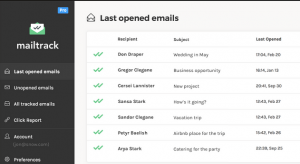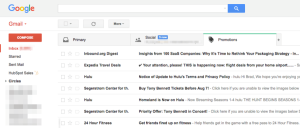
The internet has done a lot for humanity, but improving our average level of civility isn’t one of them. Our collective ability to be unpleasant to each other is more refined than ever before. By and large, we’re using this ability to its fullest.
All public-facing roles can expect to deal with occasional abuse from irate customers, but people in internet roles (such as community managers) are going to see it more often than face-to-face sales personnel or phone support. Many community managers see torrents of abuse as a regular fact of life. What is it about the way we interact on the internet that causes this? Can the problem be alleviated?
Toxicity is the Result of Dehumanising Each Other
Much of the way we treat each other is based on empathy. If we can understand other people and appreciate that their motivations and emotions are similar to ours, we’re more likely to treat them as we would wanted to be treated. Our ability to empathise with others is contingent on our ability to recognise them as people.
A salesperson working a sales floor understands that they’ll deal with a certain amount of abuse. They’re public facing, it happens. The customers who attack them manage to put them into a different, non-human group (possibly named “sales bastard”). This is not always undeserved (screw you, guy from my bank) , but that level of dehumanisation is necessary for the customer to be aggressive and unpleasant without internally ceding the moral high ground.
A telephone salesperson will deal with considerably more abuse. They’re just a voice on a line, delivering canned responses and possibly even sounding like a robot near the end of a long shift. There’s a lot of disconnect there. I’d wager that everyone reading this has either yelled at a telemarketer or really, really wanted to. Even the simple act of hanging up on someone is a relatively aggressive act that we’d find it difficult to replicate when faced with a live human being. Think about how hard it would be to literally blank a salesperson when they say “Can I help you with something?”. They’re a person. The idiot on the phone is an idiot on the phone. Even then, we can hear the emotion in their voice and hopefully appreciate to a degree that they’re a conscious being.
Once you’re just a line of text on a screen, all bets are off. Even if people intellectually understand that those lines of text represent a real person, they won’t intuitively empathise. Empathy is something that people rarely think to actively deploy, we let our reflexive intuition do it for us. This lack of plumbed-in empathy is the reason why people on either side of a debate on Twitter don’t treat each other like rational human beings. They treat them like, at best, animals. More often, they treat them like simple objects, with no humanity attached to them at all.
This Isn’t a Problem You Can Solve, but it’s One You Can Manage
Like it or not, our work is online. We will be dealing with toxicity from people who literally do not perceive us as human. This is inevitably going to lead to stressful situations. People who might otherwise be perfectly nice to you will act with appalling rudeness, and you’ll be professionally obliged to deal with it. It gets easier with time, but there’s a few things you can keep in mind to make the psychological hits easier to take:
They Don’t Hate You, They Just Think They Do
You’ll read a lot of anger and hate around you and what you do. Real, venting bile. You’ll be compared to a nazi, called a censor, a monster and the worst kind of criminal. This will be delivered by people with no sense of irony, who will not be persuaded in any way that they are overreacting.
Their hatred is based on a false premise. These people don’t know you, they can’t know you. They don’t hate you either. They hate a persona and an idea. That idea is half composed of things you’ve actually said and half concocted from inferences and allusions that they’ve conjured up, lacking the context that a face-to-face interaction would provide.
This doesn’t let you off the hook completely. There are still absolutely bad community managers who should respond to this harsh criticism by looking inwards. We can all get better at our jobs. It’s important to express that persona and idea in the best way that you can, to the maximum effect. Rather, it means that you shouldn’t take any of the things you read about yourself personally. They aren’t personal, even if the people hurling insults think they are. They’re incapable of being personal. They don’t know you personally.
Pick Who You’re Going to Care About
It’s impossible to be liked by everyone. Don’t try. Think more about the kind of people that you want to like you. Who’s worthy of that effort in your community? Chances are it’s not the troll, the angry complainer or the passive-aggressive needler. You can make peace with the fact that those people don’t like you, because those aren’t people that it’s worth being liked by. If unpleasant people dislike me, I tend to see that as a sign that I’m doing something right.
In general, strong, hateful voices crowd others out very easily. It’s why unmoderated communities quickly become ruled by their most toxic elements. If you’re alienating and annoying those elements and making the community less welcoming to them, your community is more inclusive and more successful overall. Negative reaction from negative elements is a positive.
This doesn’t mean only listening to people that praise you or think you’re doing a good job. That’s how a lot of bad communities got to be the way they are. It means that you should find the best people to listen to. Effective, intelligent critics who are the type of contributor that you community wants to keep and attract.
It means listening to effective, intelligent critics who are the kind of people you want in your community and dismissing the kinds of people you don’t want there.
Your Job is to be Effective, Not to be Liked
There a lot of potential objectives for a community manager. A high personal NPS score is unlikely to be one of them. If your community is fulfilling its business goals, growing and succeeding it doesn’t matter if every single person on there hates you.
The flipside of that is that extreme animosity will make it harder for you to get your job done. This is a personality gig, and while people may not like you a modicum of respect is necessary. There’s no way to fake respect, you’ve either earned it or you haven’t. Focus on building respect above all things. Those are the hits that will teach you something.
Business & Finance Articles on Business 2 Community(90)
Report Post








